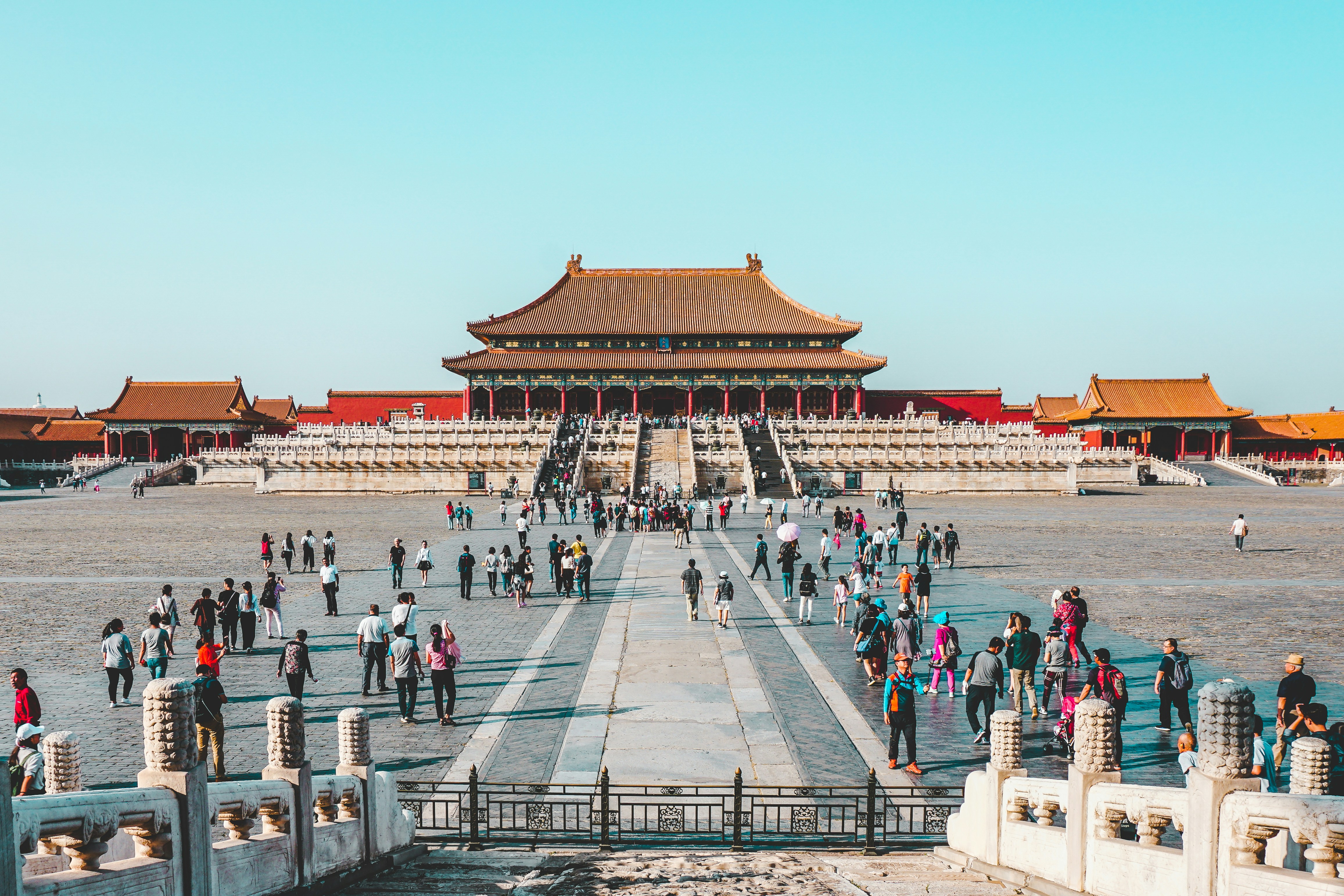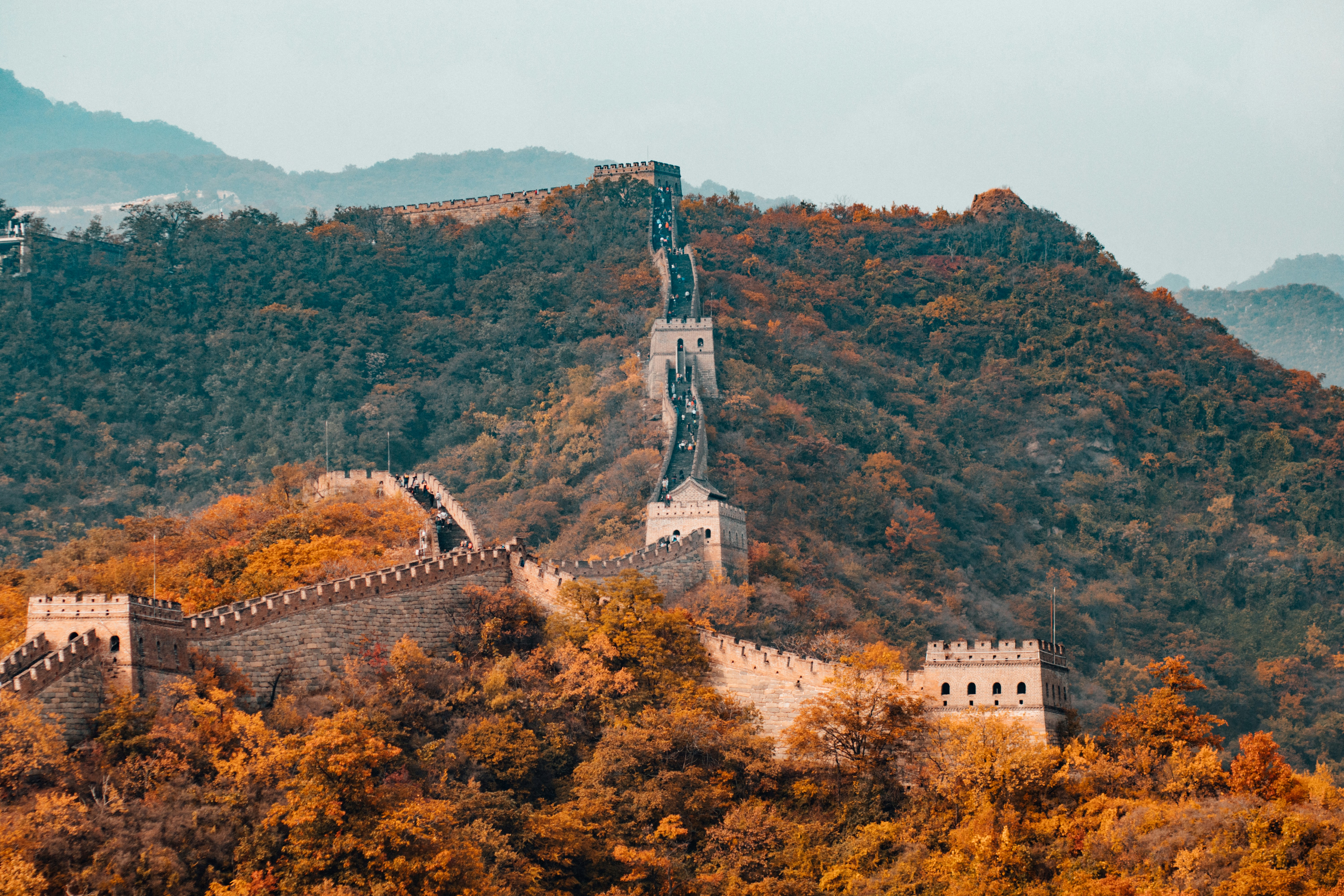
Living in China as an expat offers a unique opportunity to deeply explore one of the world’s oldest civilizations beyond the typical tourist experience.
While short-term visitors often rush between sites, as residents, we have the luxury of time to develop a more meaningful connection with China’s cultural heritage.

This guide focuses on how expats can integrate visits to China’s most significant landmarks into their lives here, with practical information, local insights, and strategies for experiencing these treasures as a resident rather than a tourist.
Planning Your Cultural Exploration
Regional Approach for Expats
China’s vast size means that cultural landmarks are spread across thousands of kilometers.
As an expat, consider adopting a regional strategy based on your location:
| Region | Major Expat Hubs | Key Cultural Landmarks |
|---|---|---|
| Northern | Beijing, Tianjin | Great Wall, Forbidden City |
| Eastern | Shanghai, Hangzhou, Suzhou | The Bund, West Lake, Classical Gardens |
| Central | Wuhan, Zhengzhou | Yellow River sites, Ancient capitals |
| Western | Chengdu, Xi’an, Lhasa | Terracotta Army, Potala Palace, Leshan Buddha |
| Southern | Guangzhou, Shenzhen | Lingnan architecture, Colonial heritage |
Long-Term Access Options
Unlike tourists, expats can take advantage of:
- Annual passes: Many major sites offer yearly memberships that quickly pay for themselves with just 3-4 visits
- Resident discounts: Several provinces offer discounted admission for residents with work permits
- Off-peak visiting: The flexibility to visit during weekdays or non-holiday periods
As James Wilson, a British expat in Beijing, shares: “I purchased the annual pass for the Great Wall at Mutianyu for ¥400. As a tourist, I would have paid ¥120 for a single visit. Living here, I’ve gone six times in different seasons—each visit offers something completely new.”
Northern China
The Great Wall

Beyond the Tourist Experience
While tourists typically visit just one section for a few hours, expats can explore multiple segments throughout the year, witnessing how the Wall transforms with the seasons.
Sections Worth Exploring:
- Mutianyu: Most family-friendly section with excellent restoration and facilities
- Expat tip: Arrive before 8 AM on weekdays to have the wall almost to yourself
- Entrance fee: ¥120 (¥400 for annual pass)
- Opening hours: 7:30 AM – 5:30 PM (April-October); 8:00 AM – 5:00 PM (November-March)
- Official Mutianyu Great Wall website
- Jinshanling: For photography enthusiasts and hikers seeking authentic, less-restored sections
- Expat tip: Join WeChat hiking groups like “Beijing Hikers” to find companions for the more challenging sections
- Entrance fee: ¥65
- Opening hours: 8:00 AM – 5:00 PM
- Simatai: The only section open for night visits
- Expat tip: Requires reservation 3 days in advance through their official website
- Entrance fee: ¥120 (night visit: ¥160)
- Night visit hours: 6:00 PM – 10:00 PM
Local Perspective
Wang Lei, a Beijing resident, notes: “Most Chinese people visit the Wall during significant life moments—when children finish school, when parents retire. It’s not just a tourist site but a symbol of our collective identity and resilience.”
The Forbidden City (Palace Museum), Beijing
Immersive Exploration for Residents
The Forbidden City is too vast to appreciate in a single visit.
As an expat, you can explore different sections over multiple visits, focusing on specific themes each time.
- Entrance fee: ¥60 (April-October); ¥40 (November-March)
- Opening hours: 8:30 AM – 5:00 PM (April-October); 8:30 AM – 4:30 PM (November-March)
- Closed: Mondays (except national holidays)
- Official Palace Museum website
Expat Strategy
- First visit: Focus on the central axis (Three Great Halls)
- Second visit: Eastern palaces (living quarters)
- Third visit: Western palaces and exhibitions
- Fourth visit: Gardens and less-visited corners
Expat tip: The Palace Museum offers a yearly membership card (¥300) that includes unlimited entry and special exhibition access.
Cultural Context
The Forbidden City represents the pinnacle of traditional Chinese concepts of space, hierarchy, and cosmology.
Understanding its layout helps expats grasp fundamental aspects of Chinese cultural values that persist in modern society.
Dr. Zhang Mei of Beijing University explains: “Even modern Chinese office buildings often follow similar principles of hierarchy and spatial arrangement that you see in the Forbidden City. Understanding this space helps understand contemporary Chinese organizational culture.”
Eastern China
West Lake, Hangzhou
Year-Round Appreciation
West Lake changes dramatically with the seasons, offering expats living in or near Hangzhou the chance to experience its famous “Ten Scenes” throughout the year.
- Entrance fee: Free (some gardens and museums around the lake charge small fees)
- Best times: Early mornings for photography; evenings for the musical fountain show
- Hangzhou Tourism website
Expat Integration
Many expats in Hangzhou incorporate West Lake into their daily routines:
- Morning tai chi practice along the banks
- Weekend picnics on Gushan Island
- Evening strolls along Bai Causeway
Sarah Chen, an American expat teaching in Hangzhou, shares: “I cycle around West Lake three mornings a week. It’s become my moving meditation space, and I’ve made friends with local photographers and painters who gather there regularly.”
Cultural Events for Expats
- West Lake Lotus Festival (summer)
- Mid-Autumn Festival celebrations (September/October)
- Hangzhou International Tea Culture Expo (April)
The Bund, Shanghai
Beyond the Skyline Photos
While tourists snap quick photos, expats in Shanghai can develop a deeper appreciation for the Bund’s architectural heritage and its role in Shanghai’s evolution.
- Entrance fee: Free
- Best times: Early morning for photography; evening for the light show
- Shanghai Tourism official information
Architectural Walking Tours
The Bund features 52 buildings of various architectural styles. Expats can take self-guided tours focusing on:
- Art Deco influences
- Colonial banking institutions
- Modern adaptations of historical buildings
Local Insights
Shanghai native Liu Wei suggests: “Visit the Bund during different weather conditions. On foggy mornings, the buildings emerge like ghosts from the past; during rainstorms, the wet streets reflect the lights in ways tourists rarely see.”
Suzhou’s Classical Gardens
Seasonal Visits for Deeper Appreciation
Suzhou’s gardens were designed to be experienced throughout the year, with each season highlighting different aspects of their design.
- Entrance fees: Vary by garden (¥40-90 per garden)
- Combined ticket: ¥150 for multiple gardens
- Opening hours: Generally 7:30 AM – 5:30 PM
- Suzhou Garden Museum official site
Gardens Worth Multiple Visits:
- Humble Administrator’s Garden: Largest and most famous
- Lingering Garden: Known for architectural diversity
- Master of Nets Garden: Best example of miniaturization techniques
- Lion Grove Garden: Famous for rock formations
Expat Advantage
Many gardens host seasonal events that tourists miss but expats can enjoy:
- Spring plum blossom viewings
- Summer evening openings with traditional music
- Autumn chrysanthemum exhibitions
- Winter snow scenes (rare but spectacular)
Central China
Terracotta Army, Xi’an
Beyond the Main Pits
While tourists focus on Pit 1 with its famous warrior formations, expats can explore the entire archaeological complex and return as new discoveries are made.
- Entrance fee: ¥150 (March-November); ¥120 (December-February)
- Opening hours: 8:30 AM – 5:30 PM
- Emperor Qinshihuang’s Mausoleum Site Museum
Expat Strategy
- Visit during different excavation phases (the site is active and constantly evolving)
- Attend special exhibitions of newly discovered artifacts
- Explore the surrounding Lishan area, often overlooked by tourists
Archaeological Context
Dr. Li Xiuzhen, senior archaeologist at the site, explains: “What visitors see is only about 1% of the entire mausoleum complex. We’re constantly making new discoveries that change our understanding of Qin dynasty culture.”
Expat tip: Xi’an offers weekend archaeology lectures at the Shaanxi History Museum that provide deeper context for the Terracotta Army. These are rarely attended by tourists but provide valuable insights for expats interested in Chinese history.
Western China
Leshan Giant Buddha
Spiritual and Natural Context
Beyond the impressive statue itself, the surrounding Mount Emei area offers expats living in Sichuan opportunities for deeper exploration of Buddhist culture and natural beauty.
- Entrance fee: ¥200 (includes ferry)
- Opening hours: 7:30 AM – 6:30 PM (summer); 8:00 AM – 5:30 PM (winter)
- Official Leshan Tourism website
Expat Experiences
- Participate in morning chanting at nearby temples
- Hike the network of trails connecting Buddhist sites
- Visit during different water levels of the Min River to see how the Buddha’s relationship with the water changes
Michael Zhang, a Canadian expat in Chengdu, shares: “I’ve visited the Buddha during drought when the water was low, and during the rainy season when it reached his feet. The local saying that ‘the Buddha washes his feet’ in the river takes on new meaning when you see these seasonal changes.”
Potala Palace, Lhasa
Responsible Cultural Engagement
The Potala Palace represents not just architectural achievement but living Tibetan Buddhist traditions.
Expats should approach with cultural sensitivity and proper preparation.
- Entrance fee: ¥200 (May-October); ¥100 (November-April)
- Opening hours: 9:00 AM – 3:00 PM
- Important note: Requires advance reservation and travel permit
- Tibet Tourism Bureau information
Preparation for Expats
- Acclimatize to Lhasa’s altitude (3,656m) for at least 2-3 days before visiting
- Learn basic Tibetan greetings and cultural etiquette
- Understand the religious significance of different areas within the palace
Cultural Context
Professor Tenzin Dorje of Tibet University notes: “The Potala is not just a historical building but a living symbol of Tibetan spiritual identity. Visitors should understand they’re entering a space of profound religious significance.”
Expat tip: Many expats report that multiple visits to Lhasa over different seasons provide a more nuanced understanding of Tibetan culture than a single tourist trip.
Southern China
Ancient Town of Lijiang
Beyond the Tourist Streets
While tourists crowd the main thoroughfares, expats can discover the authentic neighborhoods where Naxi families maintain traditional lifestyles.
- Entrance fee: ¥80 (maintenance fee for the ancient town)
- Best times: Early morning before tour groups arrive; weekday evenings
- Lijiang Tourism official site
Cultural Immersion for Expats
- Take Naxi language classes offered at the Dongba Cultural Research Institute
- Participate in seasonal festivals like the Sanduo Festival or the Torch Festival
- Join community music gatherings featuring traditional Naxi orchestras
Local Perspective
Naxi resident He Yuhua explains: “Most tourists see only the commercialized version of our culture. The real Naxi way of life happens in the quieter alleys and in the villages surrounding Lijiang.”
Expat-Specific Tips
Leveraging Your Resident Status
As an expat, you have advantages tourists don’t:
- WeChat mini-programs: Many sites offer special promotions through Chinese social media platforms
- Resident pricing: Present your work permit or residence permit for discounts at many attractions
- Off-peak access: Visit on weekday mornings when tourist numbers are lowest
- Local connections: Join expat groups that organize cultural visits with Chinese hosts
Transportation Integration
Unlike tourists who rely on tour buses, expats can use:
- High-speed rail: China’s extensive HSR network makes weekend trips to cultural sites highly accessible
- Shared mobility: DiDi, bike-sharing, and car-sharing services provide flexible transportation options
- Local transit cards: Most cities offer transportation cards that work across multiple cities
Language and Cultural Preparation
Enhance your experience with basic preparation:
- Learn site-specific vocabulary before visiting
- Download bilingual audio guides (often available on WeChat)
- Research the cultural significance beyond the basic historical facts
Seasonal Considerations
Optimal Visiting Calendar
| Season | Best Landmarks to Visit | Why |
|---|---|---|
| Spring (March-May) | West Lake, Suzhou Gardens | Flowering trees, comfortable temperatures |
| Summer (June-Aug) | Mountain sites (Huangshan, Zhangjiajie) | Cooler temperatures at elevation, dramatic cloud formations |
| Autumn (Sept-Nov) | Great Wall, Forbidden City | Clear skies, comfortable temperatures, fall colors |
| Winter (Dec-Feb) | Harbin Ice Festival, hot spring towns | Unique winter-only experiences, fewer crowds at major sites |
Festival Connections
Many landmarks host special events during traditional festivals:
- Spring Festival/Chinese New Year: Temple fairs at historical sites
- Qingming Festival: Traditional activities at historical gardens
- Dragon Boat Festival: Races and celebrations at lakes and rivers
- Mid-Autumn Festival: Special night openings at many landmarks
Resources for Further Exploration
Digital Resources
- China Culture Corner: In-depth articles on cultural context
- Sixth Tone: Contemporary perspectives on Chinese heritage
- The World of Chinese: Magazine exploring Chinese culture
Books for Deeper Understanding
- “The Search for Modern China” by Jonathan Spence
- “China: A History” by John Keay
- “Oracle Bones” by Peter Hessler
Community Resources
- Local university lectures (many offer public talks in English)
- Cultural centers in major cities
- WeChat groups focused on history and cultural exploration
Conclusion
As an expat in China, you have the unique privilege of experiencing the country’s cultural landmarks not as a passing visitor but as a temporary resident.
This deeper engagement allows you to witness how these sites change with the seasons, participate in their contemporary cultural significance, and develop a more nuanced understanding of their place in Chinese society.
By approaching these landmarks with curiosity, respect, and a willingness to go beyond the surface experience, you’ll gain insights into China that few tourists ever achieve.
These cultural explorations will likely become some of the most meaningful aspects of your expat experience.


